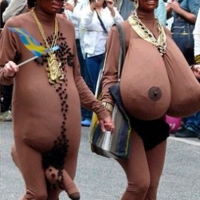What this pandemic is exposing about the “art world” in Portugal is not surprising. However, seeing it all out in the daylight and under such a condensed time-frame is somewhat mind-blowing. I’ll try not to go into specific problems being discussed here, for I feel most of the episodes that have led to this text can be abstracted and applied to many other situations and fields. Some very brief notes then:
Most artists think they constitute the core of what should be understood as “culture”, thinking they’re the ones contributing to the idea of “culture”, but that’s not necessarily true. Culture is history, it needs integration and absorption, a sort of legitimization that can happen more or less organically, with or without an established judge. That does not mean that creation and recognition take place in the same historical frame, but in order for a creative work to be understood as part of a “cultural field” it must somehow gain historical, sociological and, so, political value.
It’s definitely not something artists invented. The system has told them so and that did not happen overnight; it’s also an historical and political event. During the first Industrial Revolution, both product and its promotion were subjected to the rules of mass economy and that forever changed the notion of value for the arts. Also, as traditional entities stopped investing in art (royalty, church, etc.) and patrons evaporated, most countries assumed “culture” as just another cabinet and they put out the idea that they “fund the arts”, towards a national idea of culture. It gives me the creeps! That most artists fall for this trap still puzzles me, but I’m so alone in this discussion that I no longer go there.
Who are the cultural workers then?
Well, in my opinion, all that work towards that abstract idea of culture. If I were to agree with Clifford Geertz – for whom there’s no such thing as “human nature” without a concept of culture -, I could say that each one of us is a cultural worker, since we all somehow work towards a recognition of our identity in a relational sphere.
When seen as a set of symbolic devices for controlling behavior, extra-somatic sources of information, culture provides the link between what men are intrinsically capable of becoming and what they actually, one by one, in fact become. Becoming human is becoming individual, and we become individual under the guidance of cultural patterns, historically created systems of meaning in terms of which we give form, order, point, and direction to our lives. And the cultural patterns involved are not general but specific-not just “marriage” but a particular set of notions about what men and women are like, how spouses should treat one another, or who should properly marry whom; not just “religion” but belief in the wheel of karma, the observance of a month of fasting, or the practice of cattle sacrifice. Man is to be defined neither by his innate capacities alone, as the Enlightenment sought to do, nor by his actual behaviors alone, as much of contemporary social science seeks to do, but rather by the link between them, by the way in which the first is transformed into the second, his generic potentialities focused into his specific performances. Clifford Geertz in The Impact of the Concept of Culture on the Concept of Man.
On the other hand, if I were to side with a more popular idea of culture, I’d say culture is about contributing to a more ethical notion of Men, where the arts play a big role, given their play on “the world we live in” and, most importantly, on inventing new ideas, languages, perspectives, dialogues. Tolstoy (What is art) described art as an infection that enlightens Men about their human condition. In his assertion, great artists are people with unique sensibilities and emotional intelligence, capable of infecting others with their sincerity and empathy. In this context, art would be about making us bigger better loving creatures. It’s just lovely (no cynicism here; I truly appreciate his understanding about what is true authentic art).
But most of the workers participating in an idea of “culture” aren’t those the public recognizes as artists. Most cultural workers are not the ones “infecting” the public, but, instead, those who make sure that infection thrives. They are technicians, producers, managers, etc. They are at the core of a country’s idea of culture. What happens to these people during this period? They’re among those suffering the most, given that the infection thriving is another.
Workers in the cultural arena are mostly precarious. Some, working for institutions, are under contract and payment by a public/private entity, but most struggle to get to the end of the month. Most have no safety net, so in a moment like this, they go into real crisis, struggling to fulfill basic needs. Some have side jobs, although most of those side jobs are also precarious, so no luck here.
When this epidemic went global, it was clear that the cultural workers would be at the center of the avalanche. Here, pretty much everything got closed in the beginning of March (1st or 2nd week), except for primary services (with exceptions, obviously structured on economical arguments). This meant that every single cultural event got shutdown and everyone was sent home. As we’ve all seen, well-established artists started doing free gigs, going live on the internet and sharing their talent with the world. Fucking stay-at-home instagram festivals and whatnot… That put everyday creative practitioner in the music arena in a very difficult position, spreading to several other fields: free streamings, free workshops, the arts in open source???
What will these freebies amount to in the near future?
I find that the lack of compassion between cultural workers has no parallel. I can’t understand the reasons behind this and I’m inclined to think that it’s another consequence of the so popular idea that the state is responsible for funding artists, which are commonly mistaken for the promoters of culture. Given that in Portugal there is very little money for “the Arts”, everyone goes after its share, resulting in inevitably unfortunate debates about “value” (cultural value, artistic value, nominal value and whatnot), that tend to depict things in a very black and white spectrum. Maybe it’s money… it does tend to bleach out the grays…
Whatever the reasons, cultural workers are permanently at war with each other. Some, in their fields, tend to denigrate others, abusing words like “art” and “entertainment” to make a point. Unbearable to watch: a cultural worker trashing another cultural worker in order to fight for his/her rights, as if one excluded the other. Egotism and narcissism filling the void. Instead of coming together as precarious workers, with intermittent jobs, they play the role attributed to them. The fact is the problem affects cultural workers as it affects so many others. The core of the problem is the same: workers being valued (and payed) in isolated paychecks, for “specific” contributions and collaborations (as they like to say), as if the work was not structural, fundamental, continuous.
Dubuffet’s radical idea about the relationship between culture and art (Axphyxiante Culture), which I’ve often spoke of before here, is the one I empathize with the most. In his view, considering the public reception of an artwork as part of its conception would empty it of its meaning. Truth, individuality and singularity would be somehow incompatible with the cultural framing that establishes moral guidelines disguised as aesthetic norms. That is not contradictory with Geertz concept of Men. Dubuffet does not deny we’re beings under cultural terms, the point is to not let cultural determinations guide the making of art, be it for or against the historical conditions. In sum, it’s about being subversive; not revolutionary. As Dubuffet puts it, it’s about denying and crushing the system all together, not about recognizing it and reinventing it.
La culture s’identifie à l’institutionnalisation. Il faut se garder de le perdre de vue et de prendre illusion qu’elle consiste seulement dans un système donné de
jalonnement de la pensée, lequel il y aurait à améliorer. Ceux qui contestent les positions culturelles n’aspirent pour la plupart à rien de plus qu’à les enrichir ou rénover, mais ils ne font alors qu’apporter de l’eau à leur moulin et revivifier leur emprise. Uinstitutionnali- sation est — quelles que soient les positions qui en sont l’objet — ce qu’il faut sans répit combattre, car elle est la force opposée ä celle de la pensée individuelle et donc de la vie même; elle est proprement la force contre laquelle la pensée se constitue; elle est à la pensée comme la pesanteur au sauteur, au projectile. Jean Dubuffet in Axphyxiante Culture.
So what will happen next?
I’m inclined to think that whatever changes arise shortly after this, how great they might sound, they won’t be progressive or transformative enough. They’ll have that revolutionary nature that is determined by an historic trigger. Of course, I won’t be any more sociable after this. Isolation is a consequence of being subversive – no other way around it. That’s part of my condition and I’m ok with that. My individual choices make little to no impact on society and, yet, they’re no less significant because of that. I believe the search for authenticity is the only thing worth living for. Whatever that is, for each one of us, is for each to find out. Whatever the outcomes, I also believe those findings are our best contributions to society. Discovering who we are benefits what unites us, it potentiates what can be shared.
I do hope that after this pandemic is over, empathy, compassion and solidarity infect “the art world”. I do hope, but I don’t believe it will happen.







